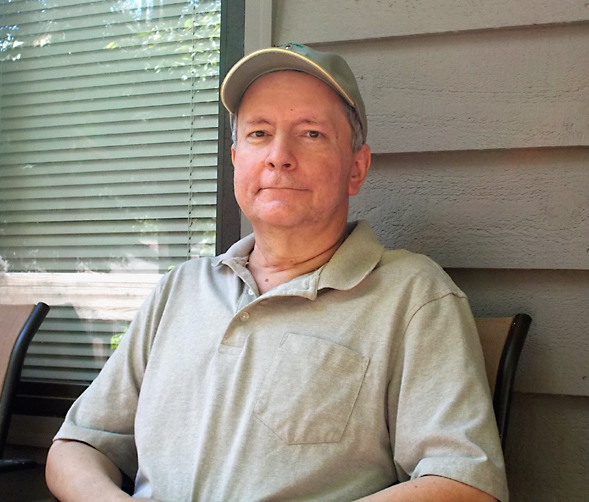Siler City native Roger Johnson knows the value of personalized medicine. After being diagnosed with bladder cancer in 2013, physicians at UNC sequenced his tumor to better understand the genetics driving his cancer.

A native of Siler City, Roger Johnson has lived in North Carolina his entire life.
“I lived in Asheboro for a good bit too,” said Johnson. “Guess how many times I went to the zoo? Twice.”
Currently living in Carrboro, Johnson enjoys meeting all different types of people. Something he was able to do while working for 12 years at Carrboro’s small business The Ink Spot. It was during his time working there that he started to notice alarming health issues.
“I started to notice blood in my urine and knew something wasn’t right,” recalled Johnson.
Following a series of tests at UNC Lineberger, Roger found out he was diagnosed with bladder cancer in February 2013.
“It was hard, it was really hard,” said Johnson.
Under the care of UNC Lineberger’s Dr. William Kim, associate professor in the UNC division of hematology and oncology and Dr. Michael Woods, associate professor of urology, Roger immediately began a treatment plan included several rounds of chemotherapy and the surgical removal of his bladder.
Roger’s tumor was sequenced through a clinical program at UNC Lineberger known as UNCseq, where patients tumors are sequenced to better understand their genetic makeup and in particular the mutations that are driving the cancer.
“This is the very definition of personalized medicine,” said Dr. Kim.
As a result of the genetic sequencing, Dr. Kim was able to determine that Roger’s cancer could possibly respond well to Afinitor, a treatment that is currently FDA approved for and in widespread use in kidney and breast cancer but not currently used in treatment of bladder cancer. But given the genetic similarities of the cancers, there was hope Roger’s bladder cancer would response favorably.
Dr. Kim was able to secure an insurance petition in order to get Roger access to the treatment, and he underwent 10 months on the therapy. Roger responded very well to the treatment, but another, more promising option then opened up.
“I knew there was a cancer immunotherapy trial about to open, and Roger would be an ideal candidate for the trial,” recalled Dr. Kim. The trial is testing an antibody designed to interfere with a protein called PD-L1 that is expressed on tumor cells. By inhibiting PD-L1, the immunotherapy drug may enable the activation of cancer fighting T cells, restoring their ability to effectively detect and attack the tumor.
The trial offered new hope for Roger, but would require him to go off of the Afinitor therapy.
“Dr. Kim prepared me that the transition would be hard, and it was,” said Roger. Between the therapies, Roger experiences severe pain and was even confined to a wheelchair. But, Roger remained hopeful the new therapy would pay off.
Roger responded almost immediately to the new immunotherapy treatment, improving his overall quality of life and slowing the progression of his cancer.
“I was coming into clinic in a wheelchair,” said Johnson. “And now I can walk. This has made a huge difference for me.”
Roger looks forward to getting back to meeting people and living life to the fullest.
“Everyone should take every day they are given and be thankful for it. I know I do.” says Johnson.
